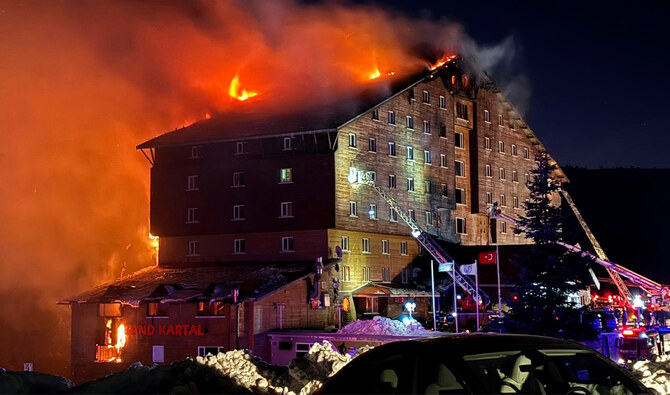KARACHI: Pakistan will use a $1.4 billion loan from the International Monetary Fund’s climate resilience fund to expand fiscal space, embed climate planning into public investment decisions and unlock private-sector capital for green projects, the IMF said on Friday.
The financing, approved by the IMF’s Executive Board in May under its Resilience and Sustainability Facility (RSF), is part of a broader reform program that aims to help Pakistan adapt to increasingly frequent and devastating climate shocks.
Pakistan is the first country in the Middle East and Central Asia region to access the IMF’s Resilience and Sustainability Facility. The fund was launched in 2022 to help climate-vulnerable low- and middle-income countries make the structural changes needed to protect their economies and populations.
“The RSF will help build climate resilience in Pakistan by creating fiscal space to address climate vulnerabilities, such as the need to improve climate-resilient adaptation infrastructure,” the IMF’s country office in Islamabad told Arab News in a written response.
“It will also boost climate’s prominence in public investment management and budget processes,” the statement said, “helping Pakistan better identify and target projects needed to strengthen resilience to climate shocks.”
A third pillar of the reforms, the IMF said, is improving the overall “enabling environment for green investment” so that banks and private firms could incorporate climate-related risk considerations into their risk management and investment activities.
The RSF financing will be disbursed over a 28-month period and runs alongside Pakistan’s $7 billion Extended Fund Facility (EFF), whose first review was also approved in May, releasing roughly $1 billion in immediate support.
CLIMATE-FINANCE GAP
Pakistan, one of the world’s most climate-vulnerable countries, has long struggled to align its public finances with the scale of climate risk it faces. The 2022 floods alone affected over 33 million people and caused more than $30 billion in damages and economic losses.
By reforming how climate priorities are reflected in budget planning and investment screening, the IMF says Pakistan will be better equipped to attract funding and respond to future disasters.
The RSF does not fund individual infrastructure projects. Instead, it supports “policy and institutional reforms that make climate action more effective,” the statement explained.
These include reforms in disaster coordination, water and irrigation infrastructure, and provincial implementation capacity.
The IMF program supports better coordination between the federal and provincial governments on disaster risk financing, a chronic weakness in past emergency responses, and policy changes that would strengthen water and irrigation management, the lender added in the statement.
“Policy reforms that directly target Pakistan’s water management and irrigation infrastructure would help make farmers more resilient to climate shocks,” it said, adding the focus would be on improving irrigation service standards, reliability, and water supply adequacy.
The reforms also aim to reduce waterlogging, salinity, groundwater depletion, and growing water insecurity, issues that disproportionately impact poor rural communities.
The IMF said its climate program in Pakistan takes a “whole-of-government” approach, with many reforms to be implemented at the provincial level.
“Much of the focus is on improving coordination mechanisms between the federal government and the provinces.”















